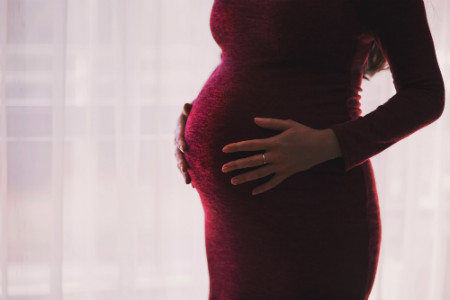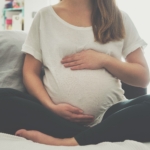While we use lithium less commonly now than we have in the past, lithium is still one of the very best mood stabilizers we have. And with regard to its use during pregnancy, we have studies going back nearly 50 years. Although nothing much has been written about the reproductive safety of lithium over the last few decades, two major studies have been published over the last year. About a year we reported on a large register study including 663 lithium-exposed pregnancies as part of the U.S. Medicaid Analytic eXtract (MAX). Now we have a meta-analysis including women from the United States, Canada, and Europe, looking at the reproductive safety of lithium across.
In a collaborative meta-analysis of register studies (Denmark, Sweden, and Ontario, Canada) and clinical cohort studies(the Netherlands, UK, and USA), Munk-Olsen and colleagues were able to analyze primary data from 22,124 pregnancies resulting in a liveborn singleton born between 1997 and 2015. In this cohort, 727 pregnancies (557 [77%] from register-based cohorts and 170 [23%] from clinical cohorts) were classified as lithium-exposed pregnancies.
A comparison group was comprised of pregnant women with a known history of mood disorder (bipolar disorder or major depressive disorder) with no exposure to lithium from 90 days before pregnancy until delivery.
Lithium exposure was not associated with increased risk of pregnancy complications or adverse delivery outcomes. The researchers did, however, observe an increased risk of neonatal re-admission to the hospital within 28 days of birth in the lithium-exposed group compared with the reference group (adjusted odds ratio [aOR] 1·62, 95% CI 1·12–2·33).
With regard to risk for major malformations, lithium exposure during the first trimester was associated with an overall increase in risk of major malformations (pooled prevalence 7·4% [95% CI 4·0–10·7] vs 4·3% [3·7–4·8]; pooled aOR 1·71, 95% CI 1·07–2·72). In contrast to the previous study from Patorno and colleagues, they did not observe an increased risk of cardiac malformations in the lithium-exposed group.
In an accompanying commentary, Dr. Megan Galbally and colleagues note one of the important limitations of this study. The comparison group included pregnant women with both bipolar and unipolar mood disorders who were not exposed to lithium. They note, “By including women with a depression diagnosis, they potentially capture data from those with lesser illness severity and most likely different overall risk profiles than those prescribed lithium throughout their pregnancy. Therefore, this comparison group is unlikely to enable investigators to account for the effects of illness or comorbidities on outcomes. However, in the sensitivity analyses a comparison was made with controls with bipolar disorder alone. When the authors did this comparison, one of the main findings—an increased risk of neonatal re-admission in those exposed to lithium—was no longer significant.”
In addition, women in the lithium-exposed group were more likely to be older, nulliparous, and more likely to have filled a prescription for a psychotropic drug other than lithium during pregnancy, as compared to those in the control group.
Especially in studies relying upon large databases, there may be important factors that are not taken into consideration. Factors associated with worse outcomes include smoking, use of alcohol and other substances, obesity, decreased use of folate supplementation, poor nutrition, and inadequate antenatal care. While many of these factors are common among women with psychiatric disorders, it is difficult to gather reliable information on these variables. Therefore, they are typically not taken into consideration.]
The Bottom Line
While this report suggests that there may be a small but statistically significant increase in the overall risk of major malformations in children prenatally exposed to lithium, we must point out that this study does not necessarily mean that women should discontinue or avoid treatment with lithium during pregnancy.
For women with bipolar disorder, lithium is one or the most effective prophylactic treatments. While some women may desire to discontinue lithium during pregnancy, decisions regarding the use of lithium during pregnancy must take into consideration the high risk of relapse during pregnancy and the postpartum period. Some women may be able to switch to lamotrigine or a combination of atypical antipsychotics and antidepressants, taking into consideration the risks associated with exposure to these medications and the risk for relapse in the setting of a medication change.
Ruta Nonacs, MD PhD
Munk-Olsen T, Liu X, Viktorin A, Brown HK, Di Florio A, D’Onofrio BM, Gomes T, Howard LM, Khalifeh H, Krohn H, Larsson H, Lichtenstein P, Taylor CL, Van Kamp I, Wesseloo R, Meltzer-Brody S, Vigod SN, Bergink V. Lancet Psychiatry. 2018 Jun 18.








Leave A Comment